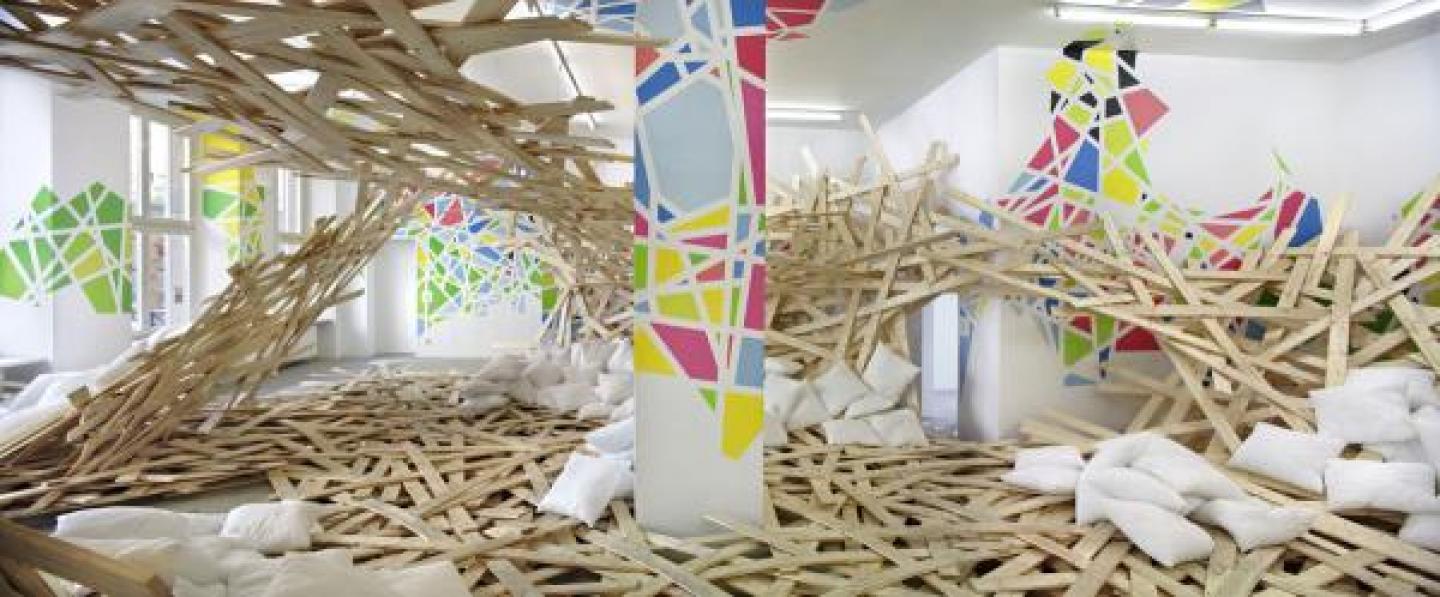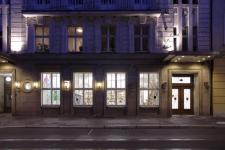The Traffic of Clouds
The Traffic of Clouds was a large scale site-specific installation in the PROGRAM Gallery Berlin developed in collaboration with Jan Christensen. The large wooden construction was woven together and worked without any connection elements; the pure tension of the interlinked wood created a stable structural system, in which all individual members stabilized each other.
This project was ultimately an experiment in collaborative thinking across disciplinary and methodological boundaries. The logic of weaving and constant movement pervaded both the built form and the wall painting. The tension in the wood fibres of the interwoven boards formed sturdy walls of lace, which redefined both the visual effect and the intended use of the wood boards. As if casting the negative space between the elements onto the gallery wall, Jan Christensen’s painting deepened the space of the room – blending color into changing views afforded by the installation.
The Traffic of Clouds aimed to question the standardized ways we use our everyday spaces and to present an alternative where the function of a space is not prescribed by convention but determined by its users. Spreading between rooms and reaching towards the ceiling, the new surfaces disrupted and reconfigured the planning of PROGRAM’s functions: the installation dissolved the boundaries between exhibition space and office, hybridizing the formerly separated gallery and office functions. Filling up the entire room, the role of the structure was also blurred – at the same time an installation object, a walking surface, a furniture and a room. Folding upon itself in waves of wood, the fluid form of the structure accommodated various activities simultaneously. Like an outdoor park, the construction provided for its users a place for leisurely diversions; continuing to blur categories of indoor/outdoor uses and sponsoring an indoor urbanism of sorts. Those who work in PROGRAM’s office space where invited and have actually used the structure as an extension of their office space throughout the duration of the exhibition. Furthermore the WiFi which was available to the public has enabled the visitors to use the structure as a wireless lounge during the exhibition hours.
2007
2007


.jpg)


.jpg)




